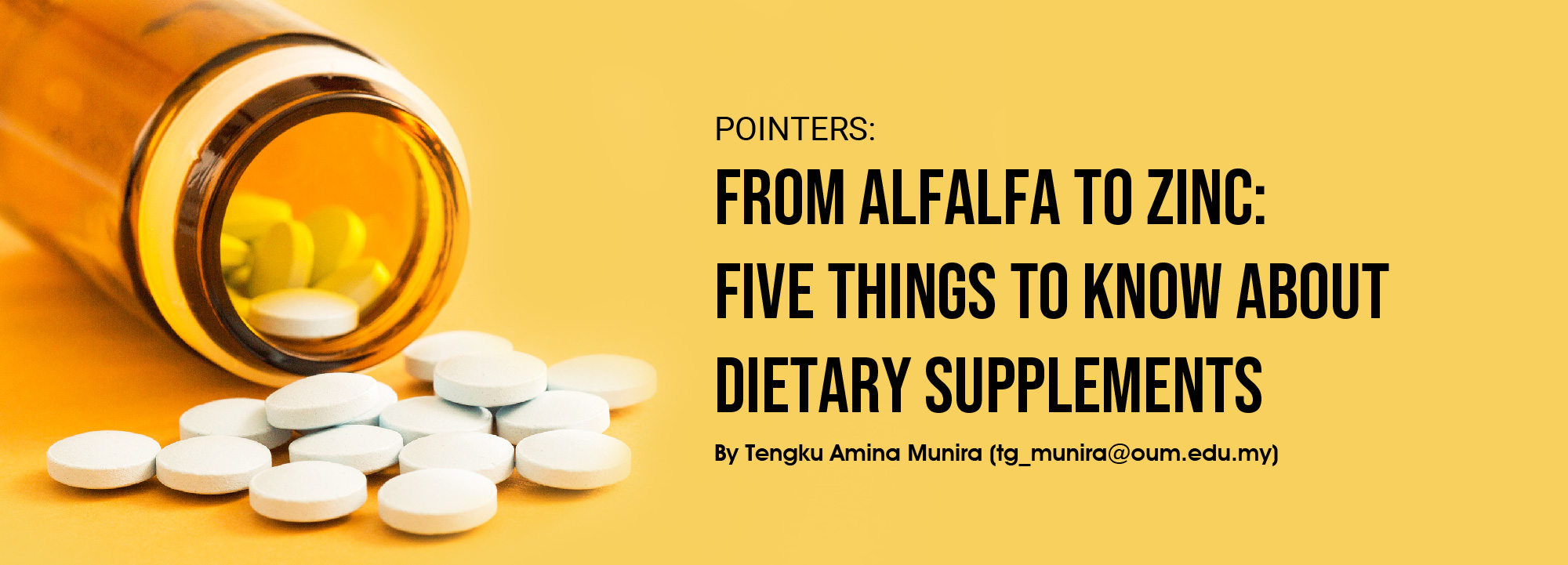
When you step into the pharmacy, you will see rows and rows of all kinds of bottled wonders. Some claim to boost your immune system, others promise to give you clear skin, or help you shed unwanted kilos. Yes, we are talking about dietary supplements. Although about a third of the Malaysian population are said to take supplements regularly, how many of us really know about these pharmaceutical marvels?
Here are five basic but important things to consider before you pop those pills.
Do they even work?
Generally speaking, yes. Many studies have already established the benefits of dietary supplements, such as helping you get adequate essential nutrients, and better manage pain or existing medical conditions. Antioxidants like vitamin C have a protective effect against free radicals, while expectant mothers know folic acid plays an important role in the prevention of neural tube defects in unborn babies. What’s important for every consumer is this – find out as much as you can (not just the potential benefits) and always make informed decisions.
Check with your doctor first.
Start by consulting a healthcare
professional who knows your
medical history. It’s important to
discuss your options thoroughly,
since a supplement’s safety and
effectiveness often depend on your
specific health condition. Here are
some questions you should ask: Are
there safety issues I should know?
What is the proper dose? How,
when, and for how long should I
take it?
What’s the combination?
While supplements are generally
good for you, many have active
ingredients that can cause
unwanted consequences. Taken in
combination with other medication,
supplements can trigger horrible
side effects or increase your risk of
bleeding. If taken before surgery,
they can also alter your response to
anaesthesia. For example, vitamin
K and gingko are known to affect
blood clotting, while St. John’s wort
can reduce the effectiveness of
certain antidepressants, birth control
pills, and even heart medications.
It’s cheaper online!
Did you find a fantastic online
deal for your favourite vitamin?
That’s great! Just make sure you’re
buying from verified shops and
pharmacies and only purchase
products that have been approved
by the National Pharmaceutical
Regulatory Agency (NPRA): these
carry the NPRA holographic sticker
and come with a unique Malaysian
registration number. Don’t buy
something just because it’s cheap:
if the product has not been
approved, it may do you more
harm than good.
Sounds too good to be true?
It probably is.
If something claims to be a miracle
cure for cancer, don’t be so quick
to believe. Tread with caution and a
little suspicion. Even if a supplement
has proven safe and effective,
never replace actual medication
with it, or attempt to be your own
doctor. Remember –
no supplement can substitute
professional medical treatment.
Information sourced from: The Malaysian Dietary Supplement Association, Medical Journal of Malaysia, US Food and Drug Administration, The National Institutes of Health UK, Penn Medicine
As a young boy, Dr Sasidharan Raman Nair was deprived of a chance at getting an education.
From working as a male nurse to his current position as Head of Medical Affairs and Quality at a hospital in Brunei, Azif Zahirin Md Amin’s career leap is inspiring and worthy of the limelight.
Did you know Malaysia and other developing countries have become the new dumping grounds for many of the world’s biggest exporters of plastic waste?
Every learner knows working and studying at the same time can be tough. For Master of Management (MM) graduate Prayashini Prabhaharan...